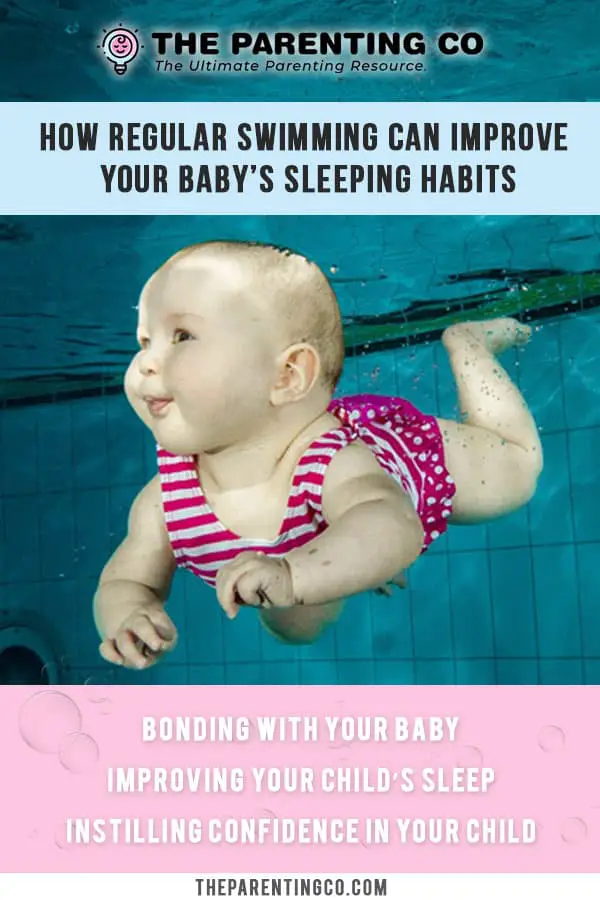That being a parent is challenging is not subject to debate. This statement particularly holds when your child isn’t the type to sleep for long hours. You end up having to stay awake, trying to rock him to sleep. All while singing countless lullaby songs and drinking excess coffee to keep your tired body from falling asleep.
Shouldn’t children develop normal sleeping habits at some stage?
Yes. As they grow older, children’s bodies tune into a normal sleep routine. But this doesn’t happen overnight. It could take several months and even years. During the first few years of your baby’s life, they are growing and changing so much. Their bodies need as much sleep as possible. It is necessary to process all that they are learning from their environment when they are awake. Unfortunately, some children, even those old enough for school, find it challenging to fall asleep without assistance.
The importance of sleep to parents and a child’s development, happiness, and well-being cannot be emphasized enough. Parenting can be quite an uphill climb when you are constantly exhausted from a lack of sleep. And by that, I don’t just mean you, mum or dad. When your 3-year-old is not getting enough sleep, the heightened feelings of everyday frustrations will throw him into a sea of tantrums.
An essential part of parenting involves going out of your way to help your baby cope with life. With an understanding of how important sleep is, parents like you have to come up with effective ways of improving your child’s sleeping habits. And one scientifically-proven way of improving sleep for children is through swimming.

How Does Swimming Improve Your Baby’s Sleep?
According to reports by the National Sleep Foundation, there exists a strong relationship between resistance exercises such as swimming and sleep quality. Self-described exercisers have often claimed to have better sleep patterns than non-regular exercisers. While vigorous exercisers report the best quality of sleep, moderate and low exercisers report moderate and poor sleeping patterns, respectively.
During swimming, all the major muscles of your body go to work. The intense workout exhausts not only your muscles but also your cardiovascular system. The result is a worn-out body that responds well to sleep.
Depending on the intensity, swimming helps the body to burn many calories. As you burn calories, your body will experience increased fatigue. The resulting sleep caused by this sense of healthy fatigue is likely to be as calm and uninterrupted as can be. Who wouldn’t want that?
Benefits of Baby Swimming
Have you ever watched your baby’s reaction to warm water with just the perfect temperature for her delicate skin? A wide smile or some visible form of excitement must be a close guess to what you observed. Babies have a high affinity with water.
Besides spending 9 months in the womb, many expectant mothers choose to have a water birth as a natural alternative to giving birth. Those who decide on water birth recognize it as a supportive, warm environment during labour. It gives babies a natural transition from the womb to the outside world. Babies can be taken swimming right from birth. They don’t need to have completed their injections to explore the freedom and gentle exercise that water offers. Swimming offers a wide range of benefits to a baby’s delicate body.
Developmental Milestones
Researchers from the Griffith Institute of Education Research found that babies who learn how to swim at a young age reach many developmental milestones earlier than their peers. In a 3-year survey of parents of 7000 children under the age of 5 in the U.S, Australia, and New Zealand, findings confirmed that children who engage in early regular swimming could master a variety of skills ahead of their peers. The results of this study were further echoed by Van Der Meer, a professor of neuropsychology. She confirmed that as babies learn new skills such as swimming, the neurons in their brains quickly increase in both number and specialization.
I’m sure you have read or heard somewhere the ideology that babies should be left to develop at their own pace. Researchers have come strongly against this belief while emphasizing the importance of challenging your baby to do things. As they continuously draw in information from their environment, babies need to be encouraged to use their bodies and senses in exploring the world around them. Swimming is one way of helping the baby use both his body and senses to explore the world.
Aside from achieving physical milestones earlier than their peers, babies who participate in swimming score significantly higher in visual-motor skills such as colouring, cutting paper, drawing shapes and lines, and mathematically-related tasks. Their areas of literacy, numeracy, and oral expression are also much better. Many of these skills come in handy in learning environments and will be beneficial to your baby during the pre-school phase.
Bonding With Your Baby
Swimming experts have pointed out the positive impact of swimming on the bonding between babies and their caregivers. Swimming together with your baby will enhance that one-on-one bonding that you may have been wanting. During the swimming lesson, you and your baby can focus on each other and spend quality time together, just the two of you.
It may seem silly and even risky to take your babies swimming when they are not old enough to walk. But the benefits of gliding through the water and splashing around outweigh the close to zero possibilities of risk. Nevertheless, you still need to take the necessary precautions when taking your child for a swim. Keeping your babies from chlorinated water until they are about 6 months old, is one of the precautionary measures you are advised to take. A baby’s skin and immune system are quite delicate below the age of 6 months. However, as babies grow older, this delicateness decreases immensely.
Is Swimming Good For Children?
It is not enough for children to be cuddled, carried around, and allowed to play with their toys indoors. They should be allowed to explore the world, experience their environment, and learn from their experiences. Swimming comes with a plethora of advantages for young children.
Reducing the Risk of Drowning
In children over 4 years of age, engaging in regular swimming exercises may reduce the risk of drowning. In the past 2 years, 965 children under the age of 5 have drowned in home swimming pools in Australia, making drowning a leading cause of death among children. If you have a pool in your home, early swimming interventions may help prevent drowning. It is, however, important to understand that in children under the age of 1, swim time doesn’t reduce the risk of drowning. Also, ensure that you or someone you trust can supervise your children at all times when swimming.
Improving Your Child’s Sleep
For children with Autism Spectrum Disorder, swimming has proved to be one of the most effective physical activity interventions for improved sleep. Such children often experience episodes of sleep disturbance. In the last few years, researchers have been able to prove the positive relationship between swimming and reduced sleep disturbances in children. Besides the fatigue that comes with swimming, the activity may help children on the spectrum with high sensitivity to regulate arousal through the tactile input provided by water.
Instilling Confidence in Your Child
Every parent’s wish is to have a confident child—one who can stand up for her rights and speak confidently in front of large crowds. Swimming can help your child achieve this. Most swimming classes for children include elements such as songs and water play. The interaction amongst children and between children and the instructor will help them learn how to function in groups. The thrill of learning something new, paired with these elements, may boost your baby’s self-confidence.
A 2010 study revealed that 4-year-old children who had taken swim classes from the age of 2 years had higher self-esteem, adapted better to new situations, and were more independent than their non-swimming peers. An older study echoed these findings, highlighting that early swim lessons for pre-school age participants were associated with:
- An enhanced desire to succeed
- A strong sense of self-control
- High self-esteem
- A sense of comfort in social situations.
As already mentioned, swimming is physically exhaustive for children. They use up a lot of energy to stay afloat and keep their bodies warm while in water. If you notice your child’s drowsy face after a swim lesson, you may have to schedule a nap time right after the pool time or move the schedule towards bedtime to help your little one have a good night’s sleep.
We all want to have a good night’s sleep. Even more importantly, we want our children to have a proper and refreshing sleep. Swimming can help to improve your child’s sleeping habits and even build on their personality. Once you notice your child has problems falling asleep or has an irregular sleep routine, you can opt to enroll them for swim lessons. Your dream for you and your child’s good night’s sleep might just be one step away. What are you waiting for?



